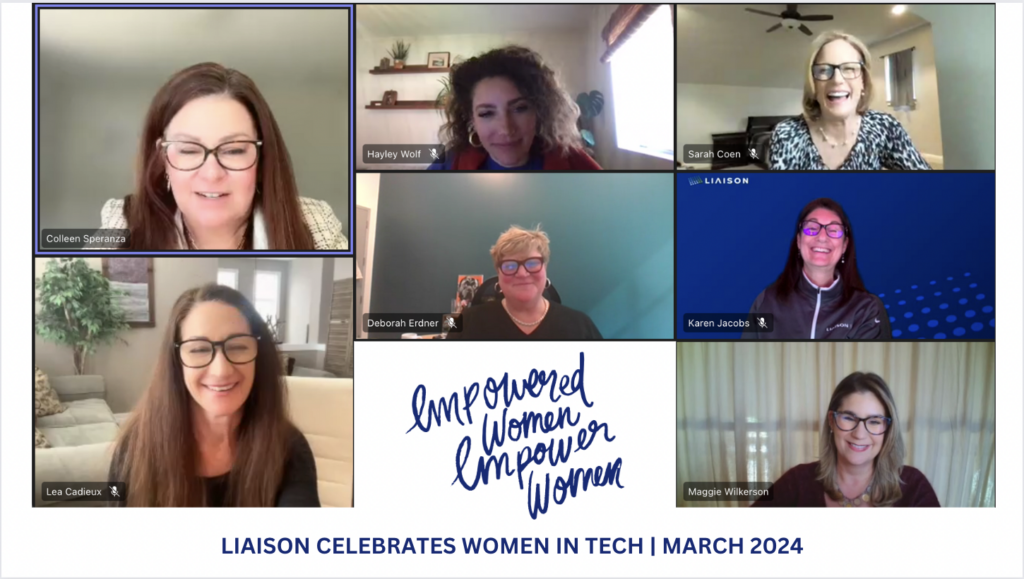On March 14th, our employees gathered to watch this live panel discussion featuring some of Liaison’s executive women in tech discussing everything from missed handshakes, to mentors, to girls in STEM. Meet the panel and dive into the discussion below!
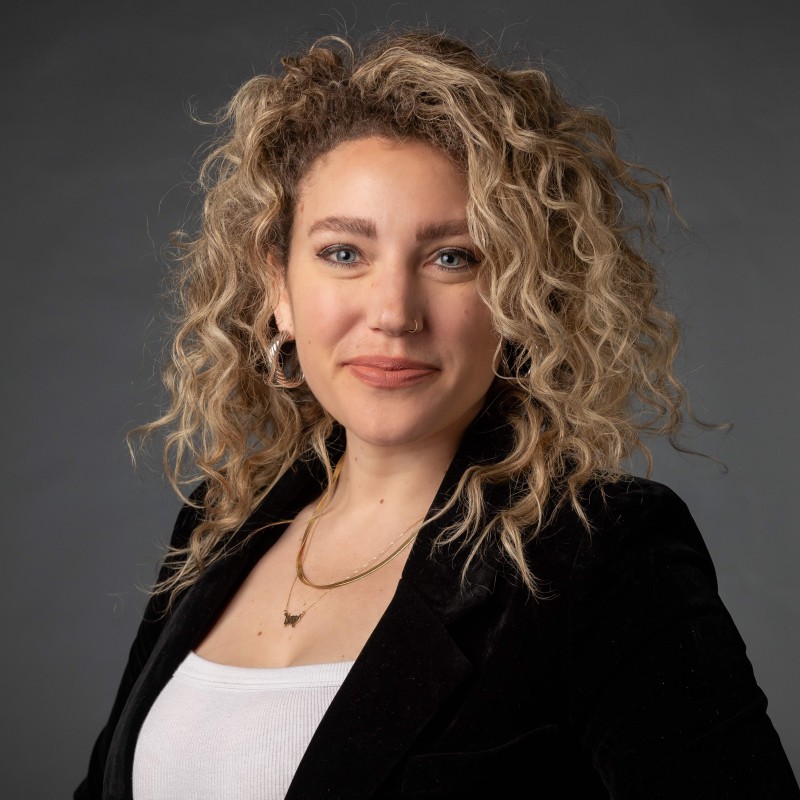
Hayley Wolf | Vice President, Sales
Spending over a decade in leadership across three campus enrollment offices as Director of Admissions. She’s been a Liaison for the last six years. She’s also successfully founded, operated, and sold two businesses a rooftop bar and a wine bar. And she brings her extensive enrollment and campus knowledge and is passionate about leading our teams to success. Hayley loves the arts, being creative, interior design, playing the piano, painting, throwing ceramics, and so on.
Fun fact: Hayley has an Oscar, Emmy, and other entertainment Award in her immediate family.
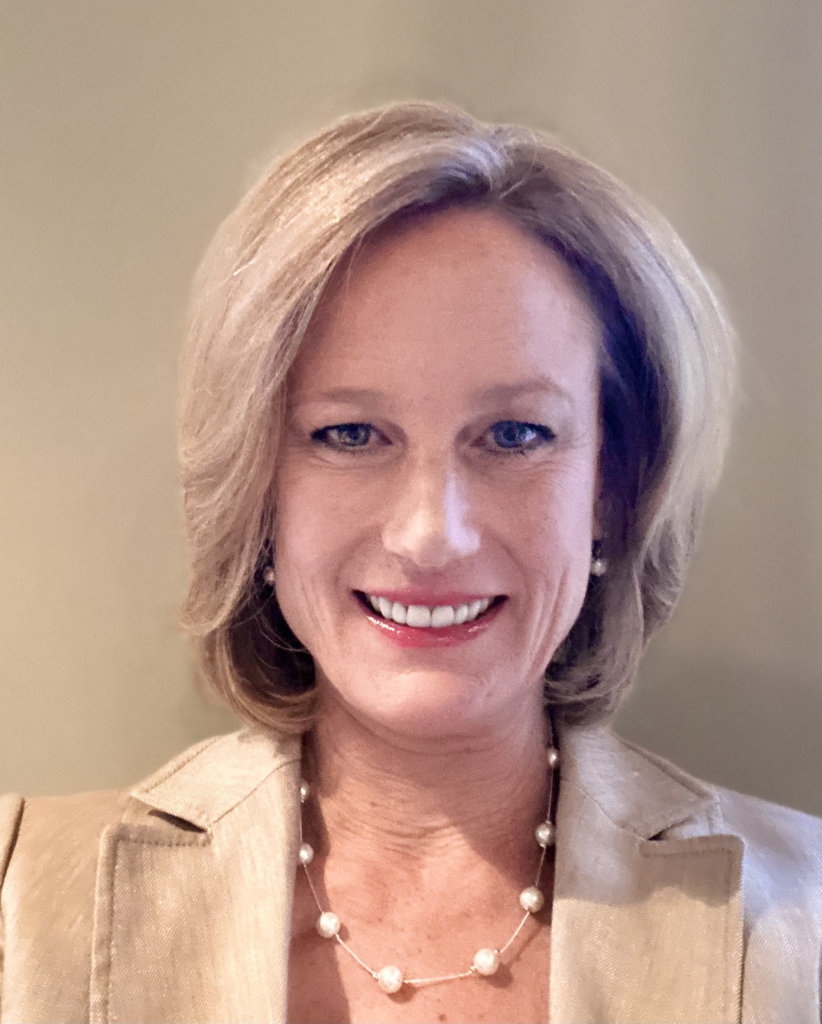
Sarah Coen | Chief Growth Officer
Sarah joined Liaison in August 2023. As our chief growth officer, she spent her entire career in higher education serving directly on campuses and on the Ed Tech vendor side. As you know, many of you know she spent 25 years at RnL delivering consulting strategy to nearly 250 campuses and state systems. And a fun fact about Sarah. She’s the youngest of seven, including three older brothers and her sisters. And she credits much of our success to the strong female role models in her life including her mom’s sisters and coaches.
Fun Fact: Sarah played Division One volleyball.
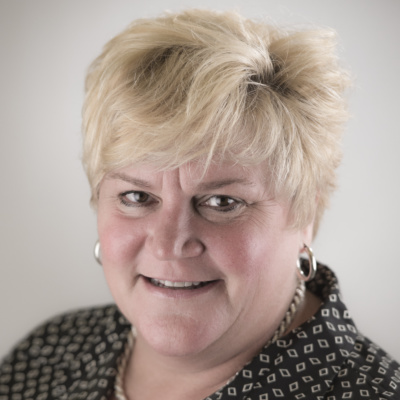
Deb Erdner | Vice President, Operations
Before coming to Liaison, Deb spent 10 years at Wilkes and PCOM, and since 2019, she’s served on the executive board at Wilkes School of Business and Engineering. Since joining Liaison, she’s had 16 titles over 20 years, which could be a fun fact. But Deb also played tennis, basketball, and soccer in college and has two older sisters. Deb attributes her success to both her sisters and her mom.
Fun fact: Deb had a full ankle replacement last spring. At this point, she’s part bionic.
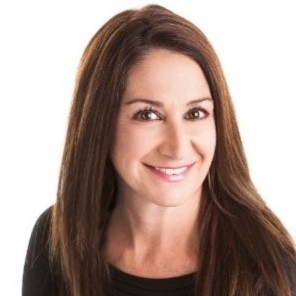
Lea Cadieux | Vice President, Marketing
Lea’s experience before joining Liaison includes leading marketing and communication teams on two university campuses and holding leadership roles in several marketing agencies, and technology companies. She also co-founded and later sold a branding agency in Washington, D.C. before relocating to beautiful Denver.
Fun fact: Lea used to babysit Pink during her teenage years and says that Pink was exactly the personality that you would expect.
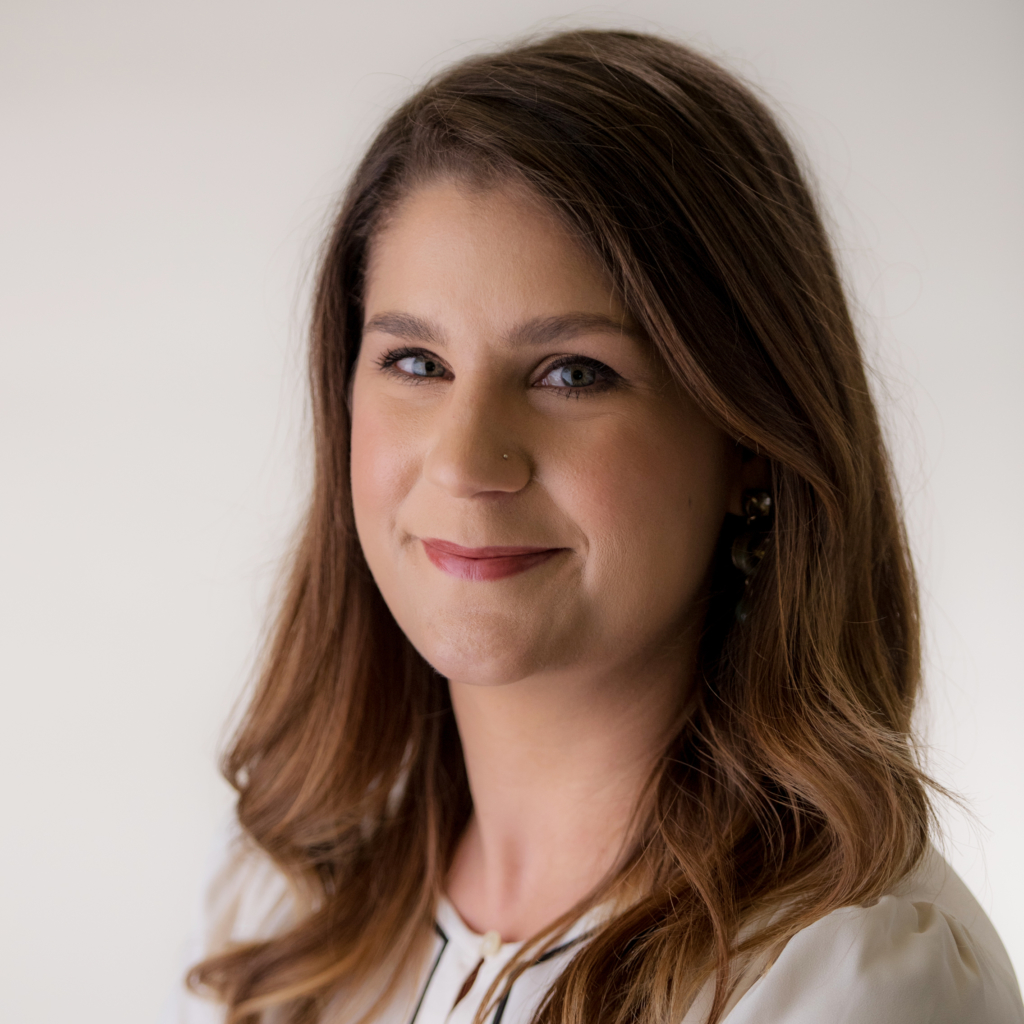
Maggie Wilkerson | President of Time2Track
Maggie started her career in graphic design and web development before acquiring the Time2Track product from its original developers in 2010 at the young age of 23. Seven years later, Time2Track was acquired by Liaison as Maggie has remained with us to lead the Time2Track division.
Fun fact: When Maggie was 10, a small plane crashed into her next-door neighbor’s house. Remarkably, no one was injured in this crash.
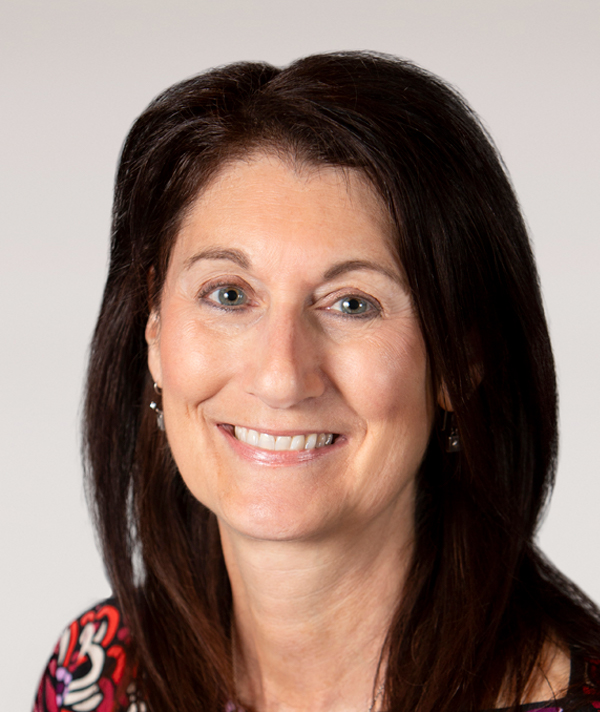
Karen Jacobs | Vice President, Account Management
Karen has over 26 years working in higher education in many areas of Enrollment Management and has worked at Jacksonville University, Penn State and Thomas Jefferson University. She has now been at Liaison for a wonderful 10 years.
Fun fact: Charles Barkley and Isaiah Thomas crashed her son’s wedding reception.
What are some of the advantages of being a woman in a leadership position?
Deb: I think one of the things that sets women apart is their emotional intelligence. When younger women see women in leadership positions, it inspires them to stay with that company. I also think women attract a more diverse workforce as well.
Hayley: By having women in leadership roles, we see things from a different perspective, and are innately multitaskers. I think that adds a whole different level and perspective to the work environment. Having both men and women in leadership provides a stronger and different perspective in the workplace.
Sarah: I’m sure the other women on the panel would agree when you’re starting a career, or when you’re in a mid-level career, it is always good to see other women also in leadership positions.
What role do you believe mentorship plays in advancing the careers of women in tech? How has being a mentor or mentee contributed to your own professional journey?
Maggie: I was privileged to grow up with a dad who worked in technology since the 1970’s. He really did a great job of exposing me to technology at a really young age of 15 years old. I saw women who were working in tech so growing up in that field and having that mentorship from my dad kind of set me on this path where I learned Front End Web Development when I was in that role. I was connected with people who really acted as mentors for me too, and really encouraged me to do those things. I think especially at a young age, mentorship can make such a huge difference for girls going into STEM careers and things like that.
Sarah: When I think about mentorship and the people in my life that have served as role models or mentors for me, I can’t imagine any of the milestones I’ve accomplished without good mentors. Whether that was being fortunate enough to played division one sports, which meant a good college, which ultimately meant a good career. I don’t think I ever would have done those things without good mentors, in terms of my mom or my coaches, who saw something in me. They saw potential and then actively did something about it.
Maggie: Those words of encouragement really stick with you as a mentee. Even if you’re not in a mentor/mentee relationship with somebody, making sure that we are taking the time to encourage others around us is so important.
Karen: I often think of mentorship as somebody who has gone through that door first, right? You’re looking at someone who did something, and you’re saying, hey, I can do that. I think the other part of it is those people, who not only went through the door first, but they held it open for you. And I think that’s really important too. The folks who actually stand there and invite you into the room or shepherd you through the process. I think that was what’s been the most impactful for me. And I think that’s a lesson that I’ve taken with me too, and I’ve hopefully tried to bring people with me as well.
Lea: Sarah, you mentioned the Pay It Forward concept. And that’s something that really has always been the guide when I have been a mentor. Early in my career, I had a female mentor who gave me a couple of pieces of advice that I’ve really latched on to and carried through to this day. So I really tried to pay it forward using those three things that were imparted to me because I truly believe in them.
- Develop your individual voice and use it often.
- Follow your instincts.
- Take the calculated risk. Jump into those opportunities that you might not otherwise consider because it’s a little scary or in fact risky. But the payoff might, in fact, be tremendous. What I found is that when you take those calculated risks, usually you will accelerate your career in ways that the safe path doesn’t always do.
How have you seen the tech industry change for women throughout your career? What can companies do to foster a more inclusive environment?
Deb: In the last few years Liaison has added two women at the executive level and more female vice presidents. At experience: LIAISON in Anaheim this June, we’re doing a women’s panel for the first time. Internally, this is the second time that we’ve done a women’s panel here too, so I think Liaison is really doing a good job at promoting and supporting women in tech.
George Haddad: We really need to be more intentional about mentorship if we can. We have done a great job of mentoring internally and empowering them to be what they want to be. But we can still do more.
Karen: Women were unduly impacted by COVID with juggling family responsibilities while working from home. There aren’t many good things that came out of the pandemic, but the accessibility it provided everyone to work from wherever they are is one of the small silver linings.
Colleen (Chief Human Resources Officer & panel moderator): I think we’ve also seen a lot more focus on getting our children and young girls into STEM programs early, which is newer in the past 10 years that I’ve seen, which has been great.
Can you share any personal experiences where you’ve had to overcome gender related challenges in the workplace? What actionable advice would you like to give your male colleagues that they can enact immediately?
Lea: I recall a client meeting with all men in the beginning of my career. The client lead shook everyone’s hand, but skipped over me. Fortunately, my manager jumped in and said, “This is Lea; you must have missed her introduction.” And that was such an impactful moment for me, because I realized what he had done there. He had taken a risk in front of everybody present and called out the client lead, we were trying to close the deal. And but he did that, because he knew it was the right thing to do. And it made me feel comfortable, it made me feel more supported. And actually, that manager went on to become one of my strongest leaders and mentors throughout my career. I think the takeaway there is, is just that to, to step in, to say something to, to support, when it is called for.
Sarah: I’ve also had experiences where I worked in my consulting career. I worked for a campus, and then it came time to present to the board. And one specific example was someone saying “you can come present to the board, but we need you to bring your male colleague with you”. And I’m like, I can bring the male colleague, but he hasn’t done any of the work. It’s all the work I’ve done. I bring this up more as a way of recognizing that we do have a different experience. It doesn’t happen everywhere. And it doesn’t happen all the time. But it definitely does happen. There’s nothing for our male colleagues to do except to understand that this stuff does still happen to us, and it shouldn’t.
Hayley: There’s a perception that I look younger than a lot of my male colleagues. I would say 99% of the time, everyone shakes the men’s hands first. We had an event last year and people kept referring to the male colleagues as if they were in charge. But what I appreciate in these scenarios is that people have always been very quick to interject and say, actually no, this is my boss. I think by making sure that you are advocating for your female colleagues when those kinds of comments happen, especially when a male colleague can do that immediately for you, it means that I don’t have to be on the defensive.
Karen: And one of the other things is less what other people can do, and maybe what we can do for ourselves and that’s owning the space that you have when you’re in an environment, right? When in a group of people, I try to make sure that I am occupying space that I’m not you know, making myself small. If you look around at everybody else in the room, the men in the room occupy as much space as they can, they feel they own the space. And I’m like “Yeah, that’s me too. I own this space as well!”
Have you ever been in situations where a female colleague treated you poorly and how have you dealt with that?
Hayley: I’ve always found that when conflict has happened from woman to woman, it has been because there was a long history of that individual not feeling heard, and they had to do that their whole career. And I think sometimes we forget that we are we’re not competing, right? At some point, every accomplishment shouldn’t feel like you’re breaking through a glass ceiling. I truly believe the intention behind it has never been because they want to put the other woman down. I think it’s because sometimes you’re just so used to coming in with your fists raised to get your point across. But you almost forgot that maybe you don’t have to wear those boxing gloves today; maybe I can just come to the table.
Karen: Colleen said in the beginning about how women couldn’t apply for a credit card until 1974, nor could she get a mortgage. My mom and I talked about how women would be fired when they were pregnant…which wasn’t too, too long ago. Even though these things may have not happened to us, it’s kind of in our DNA to always keep fighting the disparities.
Colleen: Karen, you said something earlier about your mom, and it made me think of women supporting women. I grew up in a pretty traditional household and I didn’t have a lot of females and my family is mostly male cousins. My mom always expected me at any event or family gathering; at the end of the evening, I was supposed to be the one to get up and help clean the dishes and clear the tables and all of that. And a lot of us do it because we were brought up that way.
Thank you to our panel for your candid participation and thank YOU for celebrating Women’s History Month with us!
